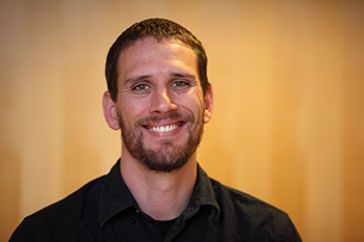PhD in Chemical Engineering
Current position: Director of Research and Development, CarbonScape, New Zealand
Research focus: carbon and graphite from renewable resources
The approach aims to minimise the cost to the environment by leaving natural graphite in the ground and avoiding other non-renewable feedstocks. In addition, the group is working on being able to utilise waste streams such as carbon black from recycled scrap tyres. Heinrich’s work in energy capture and storage gained an international reputation, which led to several grants, accolades, and collaboration with world leaders in this field.
2018 Provisional South African Patent for ‘Concentrated solar 3D printer’
2017 Awarded Mering Naude Medal of the Royal Society of South Africa
2015 Winner for Green Technology in Innovation Hub’s Gauteng Accelerator Program
2013 Participation at the 63th Nobel Laureate meeting Lindau, Germany
CV as submitted for the Green Talents award (2013):
University of Pretoria, South Africa
Research focus: carbon and graphite materials for renewable energy capture and storage
Most people are trying to eliminate carbon footprints, whereas Heinrich Badenhorst is instead redefining them by finding new and innovative ways of using carbon and graphite materials for renewable energy capture and storage.
With an abundance of carbon and graphite materials in South Africa, Heinrich Badenhorst aims to solve two problems at once: take poor quality carbon black, recovered from recycled scrap tyres, and use it to capture solar energy.
Working as a researcher for SARChI (South African Research Chairs Initiative) in Carbon Materials and Technology at the University of Pretoria, Badenhorst is part of a larger institution-wide project which unites researchers from all science and engineering faculties to focus on a variety of energy based problems.
As South Africa is among one of the fastest-growing economies in the world, energy and infrastructure demands are rising. It is critical to have credible and knowledgeable advisors who can ensure that renewable energy makes up a significant component of this new capacity.
“It would be a shame if developing nations have to go through the same fossil fuel to renewable cycle that the first world nations are going through now,” Badenhorst says.
Benefitting from his international work experience, Badenhorst is creating more efficient storage media for thermal solar energy by utilising different graphite materials and low-cost static systems.
His project focus is split into two: firstly, high-temperature, concentrated solar power for industrial use and electricity generation; secondly, low-temperature, thermal power for rural heating and warm water applications. With this research, Badenhorst aims to ensure that the locally available resources are developed and utilised to their full potential.
The jury noted the tremendous impact of Badenhorst’s research for the sustainable modernisation of the African energy supply.






